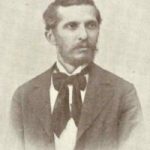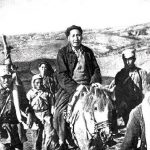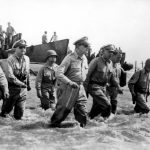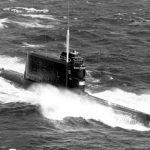 1900 – Albanian poet and writer Naim Frashëri, one of the most prominent representatives of the National Renaissance and the central figure of Renaissance literature, dies. He was baptized “apostle of Albanianism” and “whistle of the Albanian language”. Naim’s poetic work laid the foundations of national literature and played an important role in awakening patriotic consciousness. Naimi sang the longing for love for the homeland, national pride and the glorious past of Albanians. After the death of his parents, led by his older brother who had become the owner of the house, Abdyl, in 1865 the family moved to Ioannina, where together with his younger brother Sami, he graduated from the Greek gymnasium “Zosimea” in 1869. There he came in contact with the ideas of the French Enlightenment and the works of Rousseau and Voltaire. In 1871 he went to Istanbul, where he stayed only eight months, because his chest pain forced him to return to Ioannina. In the years 1874-76 he worked as a customs director in Saranda. Chest disease and knee pain from rheumatism forced him to leave Saranda and he went for treatment for six months in the baths of Baden in the Austro-Hungarian Empire. In 1878 he worked for eight months as director of tithes (ashari mydiri) in Berat. In 1882 he finally settled in Istanbul, where he worked first as a member and then as Chairman of the Inspection and Control Commission and later, Chairman of the Higher Education Council and Deputy Minister of Education. On August 14, 1882, he signed the license to publish Christoforidhi’s Grammar. After the arrest of Abdyl in Ioannina at the end of April 1881, he began to play an important role in the national activity of the Albanians there. Participated in the work of the Central Committee for the Protection of the Rights of the Albanian Nationality and the Society for the Printing of Albanian Letters. He closed his eyes on October 20, 1900. The foreign languages learned from the first private lessons and further through schooling in Ioannina made, according to Robert Elsie, Naimi a prime example of the nineteenth-century Ottoman intellectual who felt just as acclimated as both Eastern and Western culture. Naimi is the author of a total of twenty-two works: four in Ottoman, two in Persian, two in Greek and fifteen in Albanian.
1900 – Albanian poet and writer Naim Frashëri, one of the most prominent representatives of the National Renaissance and the central figure of Renaissance literature, dies. He was baptized “apostle of Albanianism” and “whistle of the Albanian language”. Naim’s poetic work laid the foundations of national literature and played an important role in awakening patriotic consciousness. Naimi sang the longing for love for the homeland, national pride and the glorious past of Albanians. After the death of his parents, led by his older brother who had become the owner of the house, Abdyl, in 1865 the family moved to Ioannina, where together with his younger brother Sami, he graduated from the Greek gymnasium “Zosimea” in 1869. There he came in contact with the ideas of the French Enlightenment and the works of Rousseau and Voltaire. In 1871 he went to Istanbul, where he stayed only eight months, because his chest pain forced him to return to Ioannina. In the years 1874-76 he worked as a customs director in Saranda. Chest disease and knee pain from rheumatism forced him to leave Saranda and he went for treatment for six months in the baths of Baden in the Austro-Hungarian Empire. In 1878 he worked for eight months as director of tithes (ashari mydiri) in Berat. In 1882 he finally settled in Istanbul, where he worked first as a member and then as Chairman of the Inspection and Control Commission and later, Chairman of the Higher Education Council and Deputy Minister of Education. On August 14, 1882, he signed the license to publish Christoforidhi’s Grammar. After the arrest of Abdyl in Ioannina at the end of April 1881, he began to play an important role in the national activity of the Albanians there. Participated in the work of the Central Committee for the Protection of the Rights of the Albanian Nationality and the Society for the Printing of Albanian Letters. He closed his eyes on October 20, 1900. The foreign languages learned from the first private lessons and further through schooling in Ioannina made, according to Robert Elsie, Naimi a prime example of the nineteenth-century Ottoman intellectual who felt just as acclimated as both Eastern and Western culture. Naimi is the author of a total of twenty-two works: four in Ottoman, two in Persian, two in Greek and fifteen in Albanian.
 1935 – The so-called “Long March” of Chinese Communist shame led by Mao Zedong ends. This march was carried out in the northern parts of China, and aimed to get out of the siege of the communist army, against the nationalist ones of Chang Kaishek. This march would last 370 days and would describe about 10,000 kilometers on foot. Thousands of Chinese communists would lose their lives in the mountains as a result of famine, disease, and cold.
1935 – The so-called “Long March” of Chinese Communist shame led by Mao Zedong ends. This march was carried out in the northern parts of China, and aimed to get out of the siege of the communist army, against the nationalist ones of Chang Kaishek. This march would last 370 days and would describe about 10,000 kilometers on foot. Thousands of Chinese communists would lose their lives in the mountains as a result of famine, disease, and cold.
 1944 – Famous American General Douglas MacArthur keeps his promise made two years ago that he would “return triumphant to the Philippines.” In what will also be called the Battle of Leyte, American troops led by MacArthur himself would land on the island, thus launching the campaign for its liberation. During this battle, U.S. military troops would have 3,500 dead and 10,000 wounded. While the Japanese would lose a full 50,000 people, most of whom would commit suicide.
1944 – Famous American General Douglas MacArthur keeps his promise made two years ago that he would “return triumphant to the Philippines.” In what will also be called the Battle of Leyte, American troops led by MacArthur himself would land on the island, thus launching the campaign for its liberation. During this battle, U.S. military troops would have 3,500 dead and 10,000 wounded. While the Japanese would lose a full 50,000 people, most of whom would commit suicide.
 1958 – Famous actor Viggo Mortensen is born in Watertown, New York. During his 35-year career, Mortensen has starred in many different films such as The Lord of the Rings, Eastern Promise, Hidalgo, and The Green Book. He will also excel in other fields such as literature, visual arts, and music. One of Mortensen’s most important awards during this decade is undoubtedly the Academy Awards (Oscar) victory with the film, The Green Book as Best Actor.
1958 – Famous actor Viggo Mortensen is born in Watertown, New York. During his 35-year career, Mortensen has starred in many different films such as The Lord of the Rings, Eastern Promise, Hidalgo, and The Green Book. He will also excel in other fields such as literature, visual arts, and music. One of Mortensen’s most important awards during this decade is undoubtedly the Academy Awards (Oscar) victory with the film, The Green Book as Best Actor.
 1961 – The Soviet Union tests for the first time a continental ballistic missile called the R-13 from the board of a submarine. The development of this major military project would be carried out by Sergey Korolev otherwise known as the father of Russian aeronautics, and Viktor Makeyev, a nuclear missile engineer. The submarine that was used to launch this rocket was the Golf model. This military maneuver would take place after the US Navy developed a similar missile program on the Atlantic coast.
1961 – The Soviet Union tests for the first time a continental ballistic missile called the R-13 from the board of a submarine. The development of this major military project would be carried out by Sergey Korolev otherwise known as the father of Russian aeronautics, and Viktor Makeyev, a nuclear missile engineer. The submarine that was used to launch this rocket was the Golf model. This military maneuver would take place after the US Navy developed a similar missile program on the Atlantic coast.
 1968 – Jacqueline Kennedy, widow of ousted US President John Kennedy, decides to marry successful Greek-American businessman Aristotle Onassis. After the marriage, they both settled down in a luxurious seaside mansion. The residence was owned by Onassis himself, who had built it especially for Jacqueline in a secret bay on the island of Scorpios. They lived there for many years, until his death in 1975. After Onassis’ death, Jacqueline lived there for some time with his daughter Christina.
1968 – Jacqueline Kennedy, widow of ousted US President John Kennedy, decides to marry successful Greek-American businessman Aristotle Onassis. After the marriage, they both settled down in a luxurious seaside mansion. The residence was owned by Onassis himself, who had built it especially for Jacqueline in a secret bay on the island of Scorpios. They lived there for many years, until his death in 1975. After Onassis’ death, Jacqueline lived there for some time with his daughter Christina.
 1982 – A football match for the UEFA Cup between FC Spartak Moscow and HFC Haarlem kills 66 Russian fans. This tragedy would take place at Moscow’s Luzhniki Stadium, where hundreds of fans of both teams would flock to watch this match, beyond the capacity of this stadium. In addition to the dead, about 65 others would be injured. This tragedy will be remembered as one of the worst in the history of European football in general, and Russian in particular.
1982 – A football match for the UEFA Cup between FC Spartak Moscow and HFC Haarlem kills 66 Russian fans. This tragedy would take place at Moscow’s Luzhniki Stadium, where hundreds of fans of both teams would flock to watch this match, beyond the capacity of this stadium. In addition to the dead, about 65 others would be injured. This tragedy will be remembered as one of the worst in the history of European football in general, and Russian in particular.
 2011 – Libyan military dictator Muammar Gaddafi is shot dead at the age of 70. Gaddafi would authoritarian rule the North African state for 4 years. During Gaddafi’s rule in Libya, thousands of his political opponents would be arrested, imprisoned, and executed. He would also turn Libya into a haven for Islamic terrorists, who saw official Tripoli as a safe haven. Muammar Gaddafi would be overthrown during the bloody demonstrations which degenerated into civil war. He was found by a mob of rebels in a water canal and after being publicly lynched, was killed.
2011 – Libyan military dictator Muammar Gaddafi is shot dead at the age of 70. Gaddafi would authoritarian rule the North African state for 4 years. During Gaddafi’s rule in Libya, thousands of his political opponents would be arrested, imprisoned, and executed. He would also turn Libya into a haven for Islamic terrorists, who saw official Tripoli as a safe haven. Muammar Gaddafi would be overthrown during the bloody demonstrations which degenerated into civil war. He was found by a mob of rebels in a water canal and after being publicly lynched, was killed.






